Five exciting innovations from the Cycle Show London
Titanium aero bikes, Chris King wheels, 3D-printed mountain bikes and more
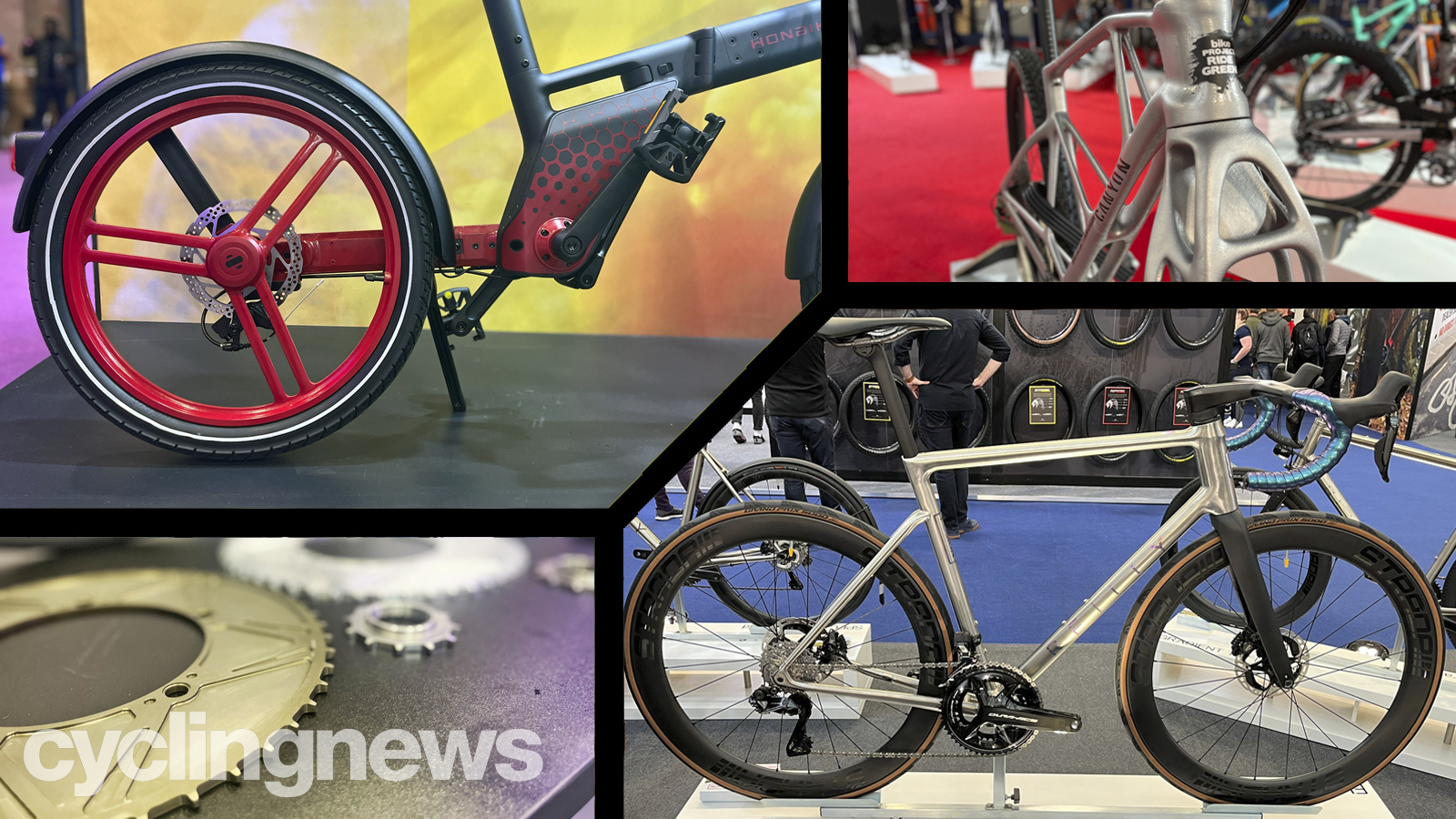
For reasons we're all acutely aware, the past few years have seen a distinct lack of in-person cycling trade shows where brands can load up their stands with their latest and greatest creations for the public - and the media - to get up-close and hands-on with. But if the past few weeks are anything to go by, there's light at the end of the COVID-19 tunnel; we recently brought you our tech gallery from Sea Otter, and now it's the turn of the Cycle Show at Alexandra Palace in London.
Walking the aisles of the show, there was a host of new product launches on display, as well as previously unseen tech and prototypes to give us a taste of what's to come in the future, and while dozens of things caught our attention, we've rounded up the five most exciting below.
So whether you're excited by the idea of a new contender for our guide to the best road bike wheels from Chris King - yes, Chris King makes wheels now - or you're wondering what Canyon's up to with environmentally friendly 3D printed bike tech, read on.
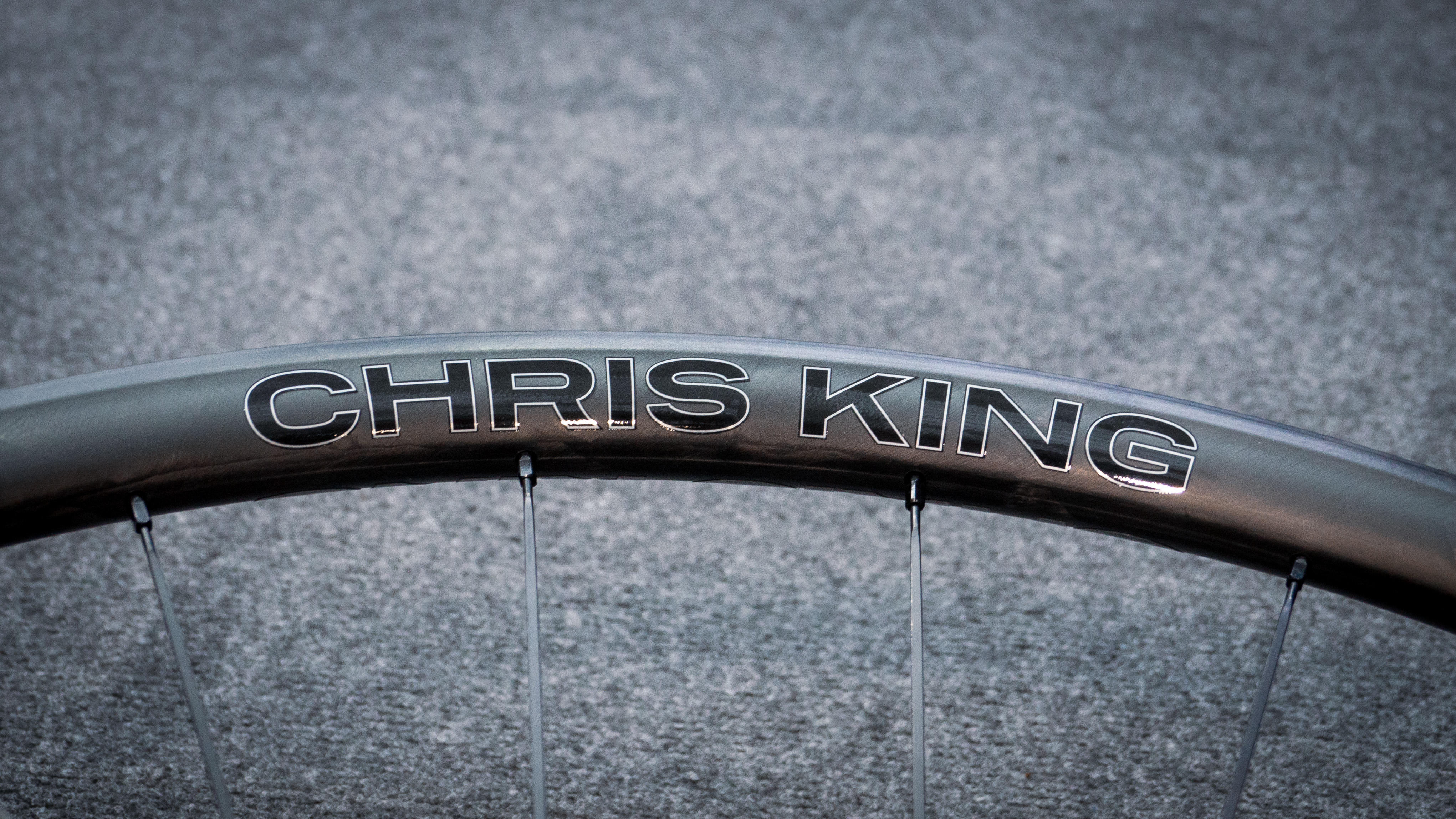
Chris King makes wheels now
As we reported in a separate story, Chris King makes wheels now. The venerable brand which has long had a strong reputation for high-quality hubs and headsets has finally branched out (somewhat literally) to make its own rims. What's more, they are wholly recyclable, meaning no environmentally unfriendly epoxy resin and no microplastics finding their way into the environment at the end of their life.
The wheels on show were the brand's gravel and road option, called the GRD23, while it also makes mountain bike wheels too.
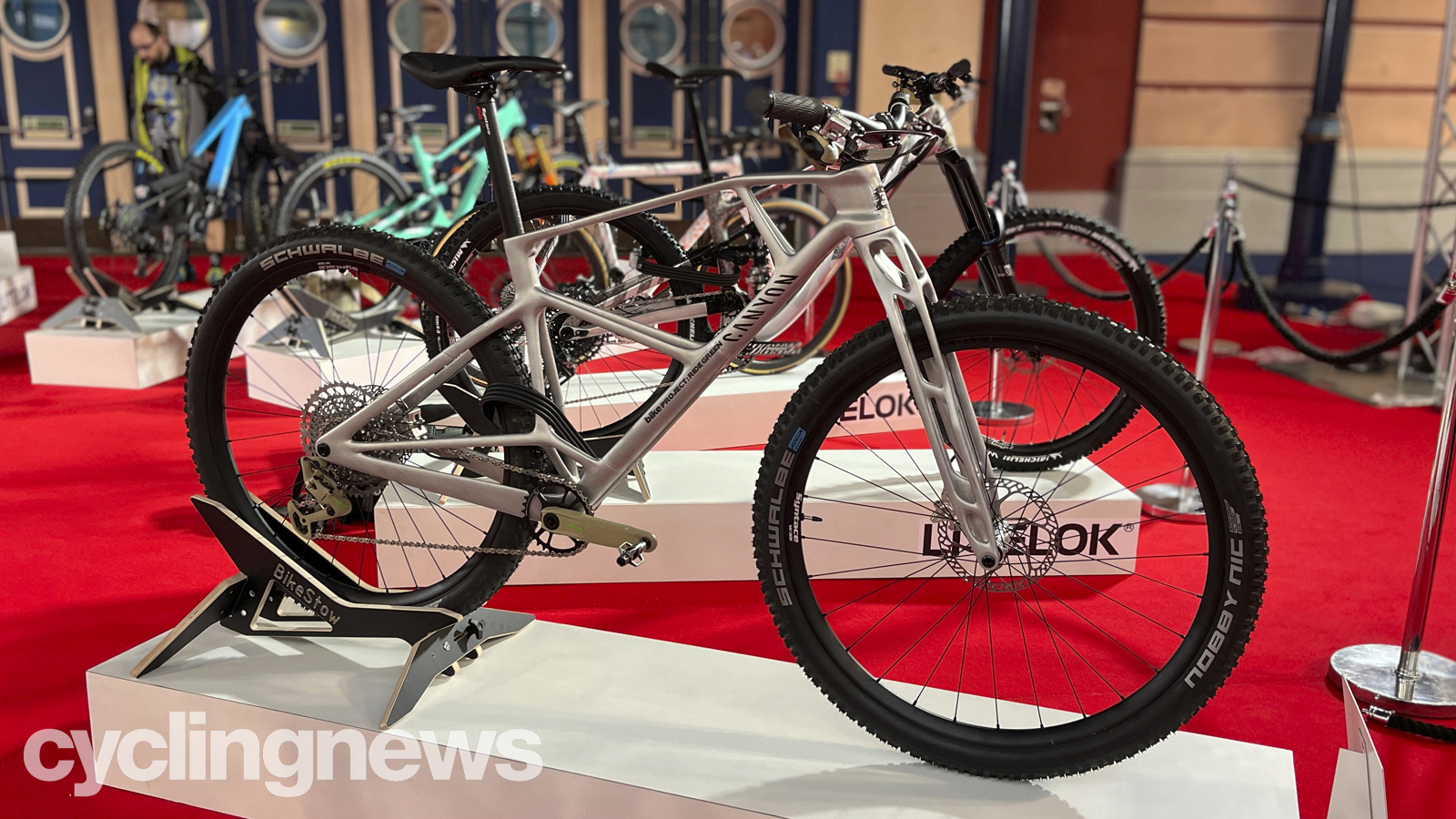
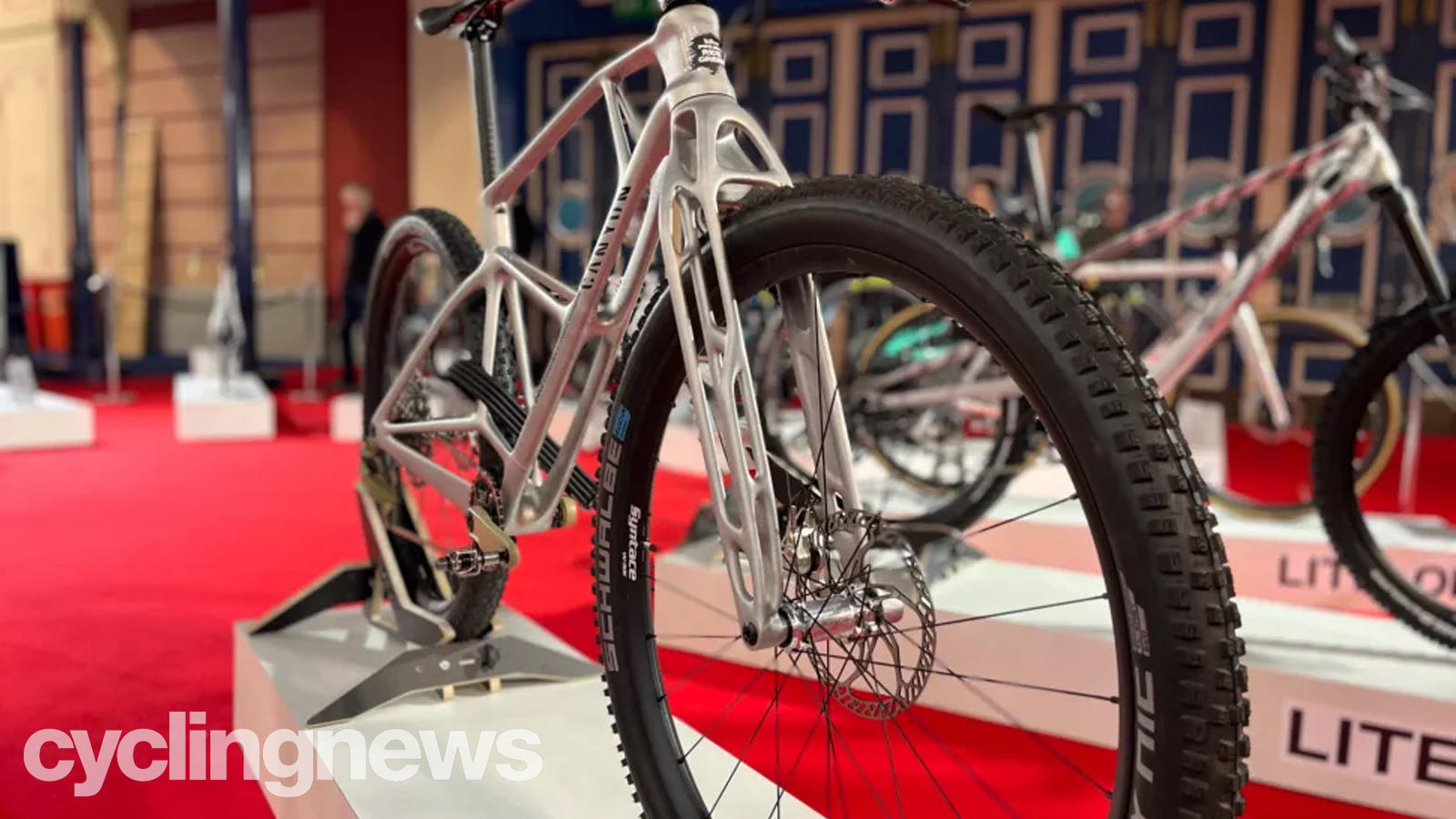
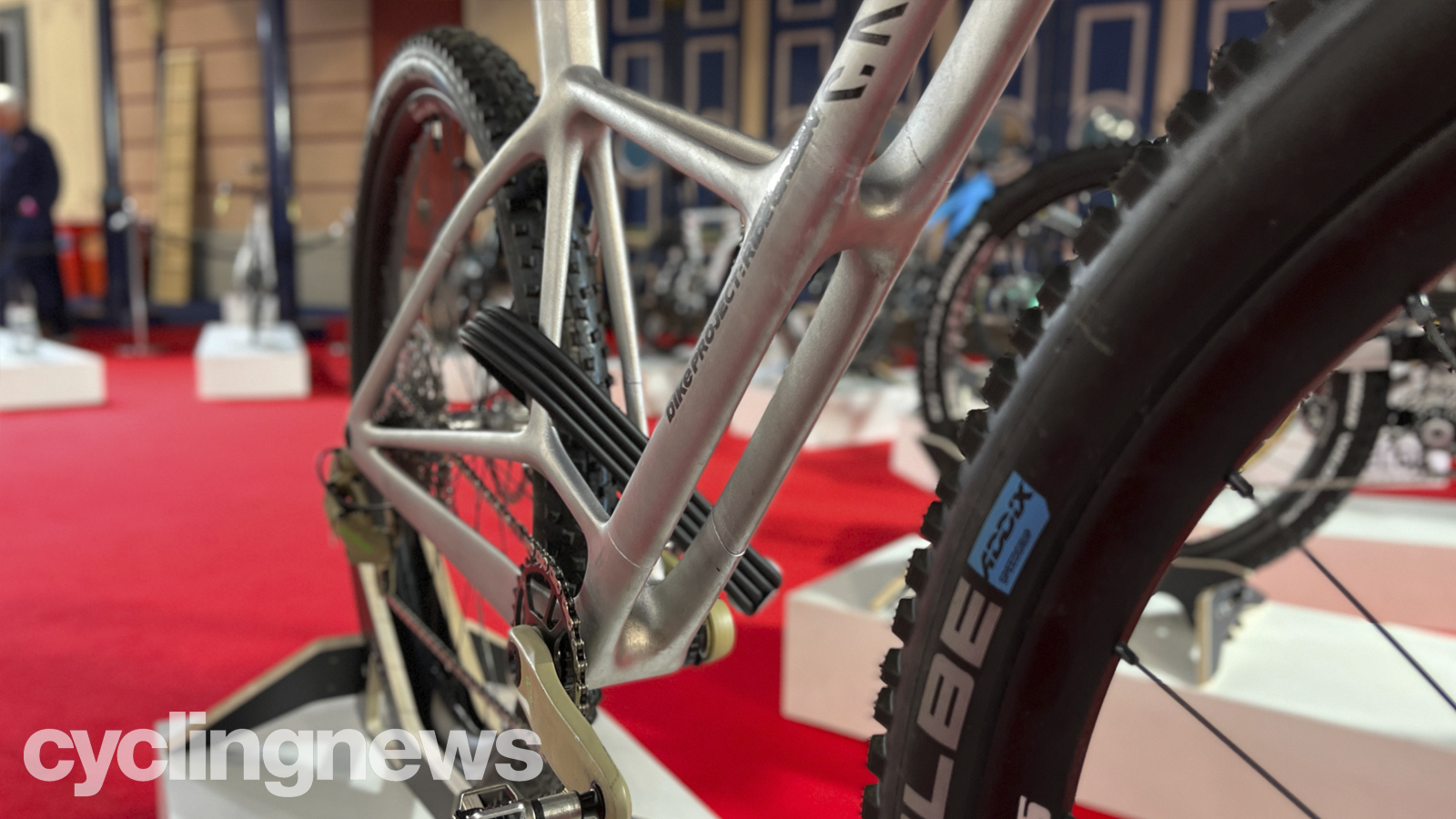
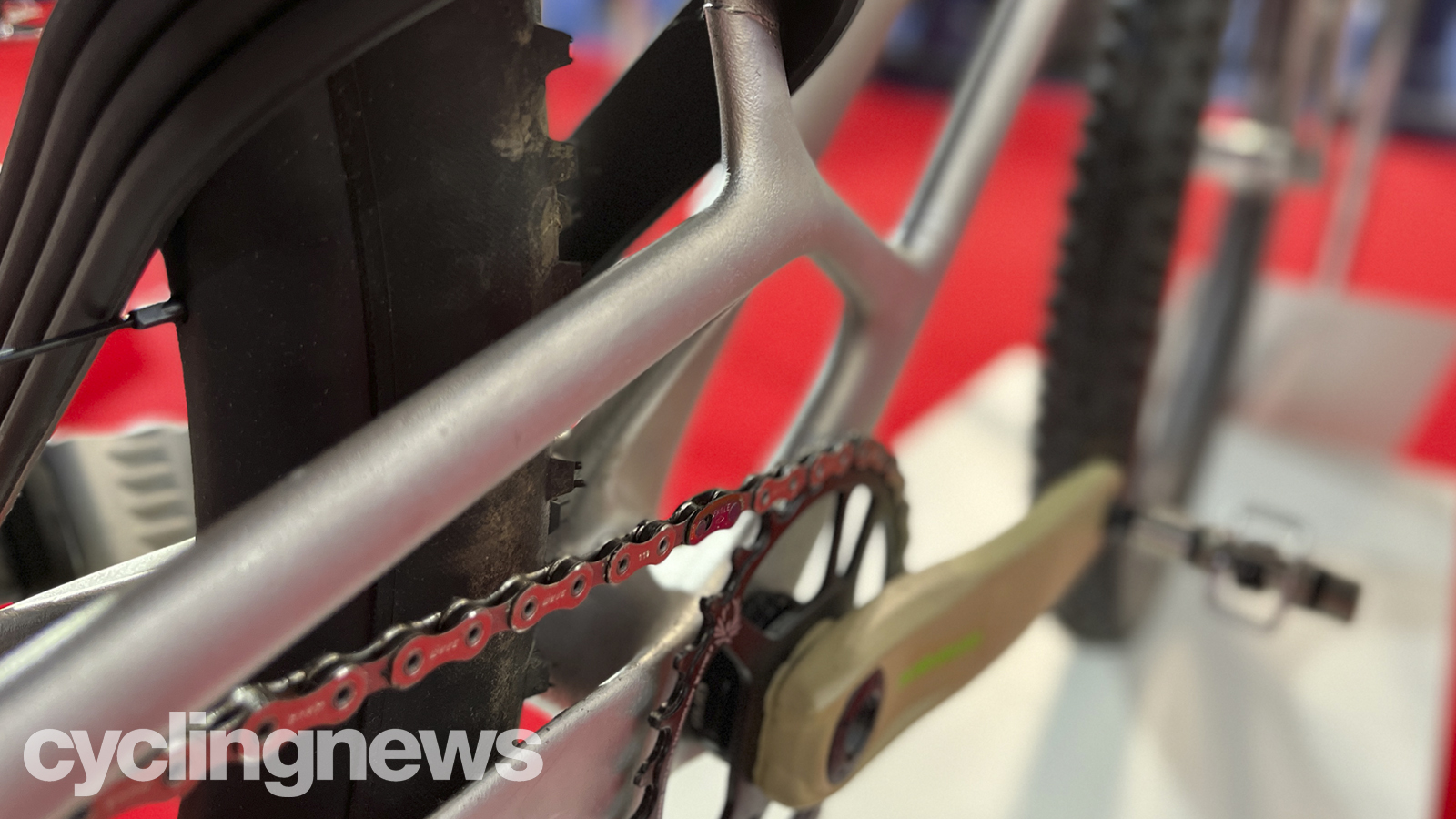
Canyon 3D-prints aluminium into a prototype mountain bike
Here at Cyclingnews, it takes something really special for us to get excited by mountain bikes, but the first bike to catch our eye at the show was Canyon's 'bike PROJECT: ride green' prototype, which was built by a Bremen-based company called Materialize. It was made using a technique known as 'selective laser melting', which involves using a laser to accurately melt aluminium powder, forming it into the solid metal final shape seen here. The main aim for the project was sustainability, with Canyon engineer Johannes Thum listing "recyclability and environmental compatibility of the materials and the principle of material recycling without loss of quality" as his team's top priority.
This is clearly in its early stages of development and is far from a rideable product, but it provides an exciting glimpse into the future of Canyon's direction as a company and the potential future of bike manufacturing as a whole. You can read more about the bike courtesy of our friends at Bike Perfect.
Get The Leadout Newsletter
The latest race content, interviews, features, reviews and expert buying guides, direct to your inbox!
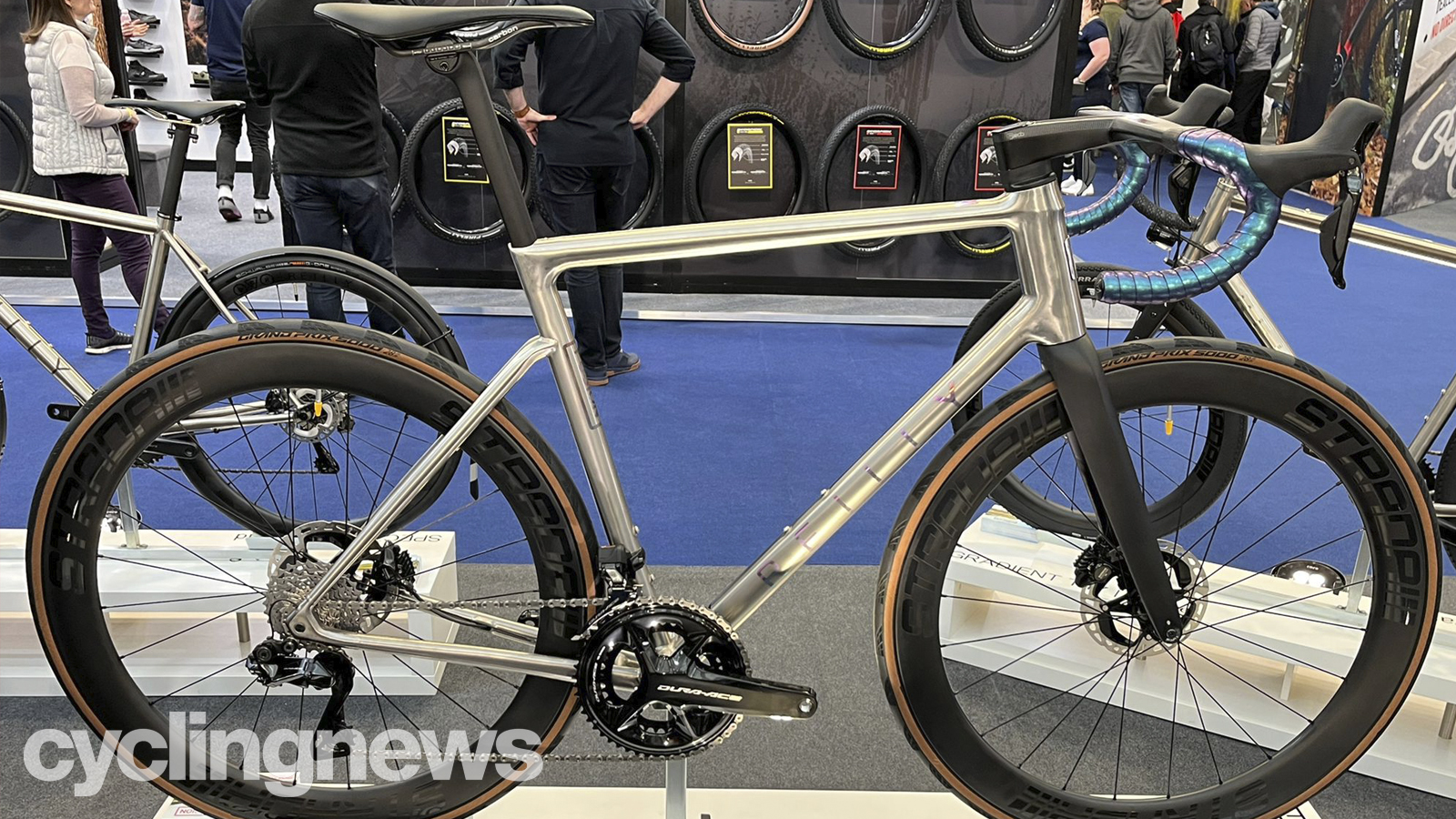
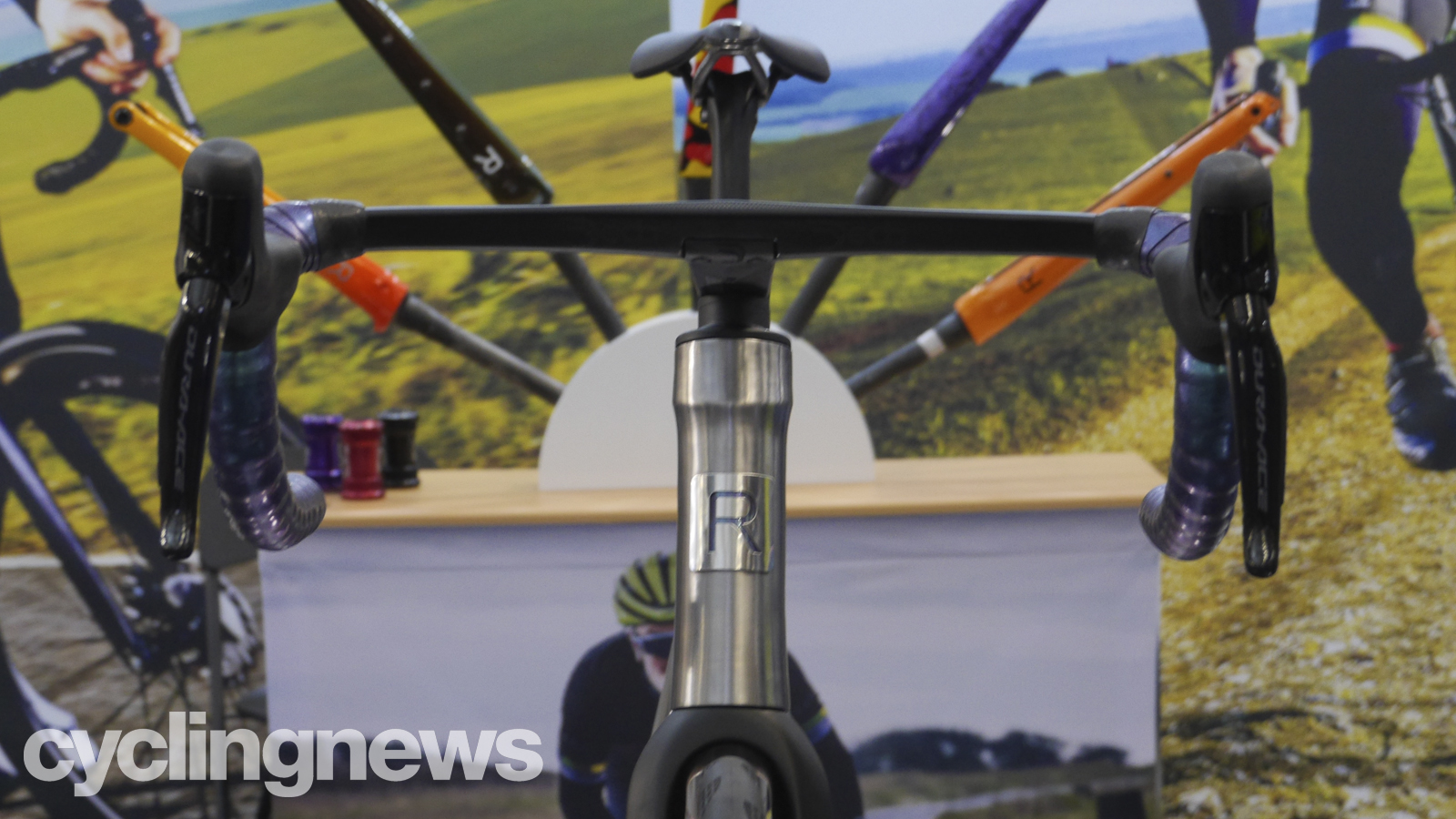
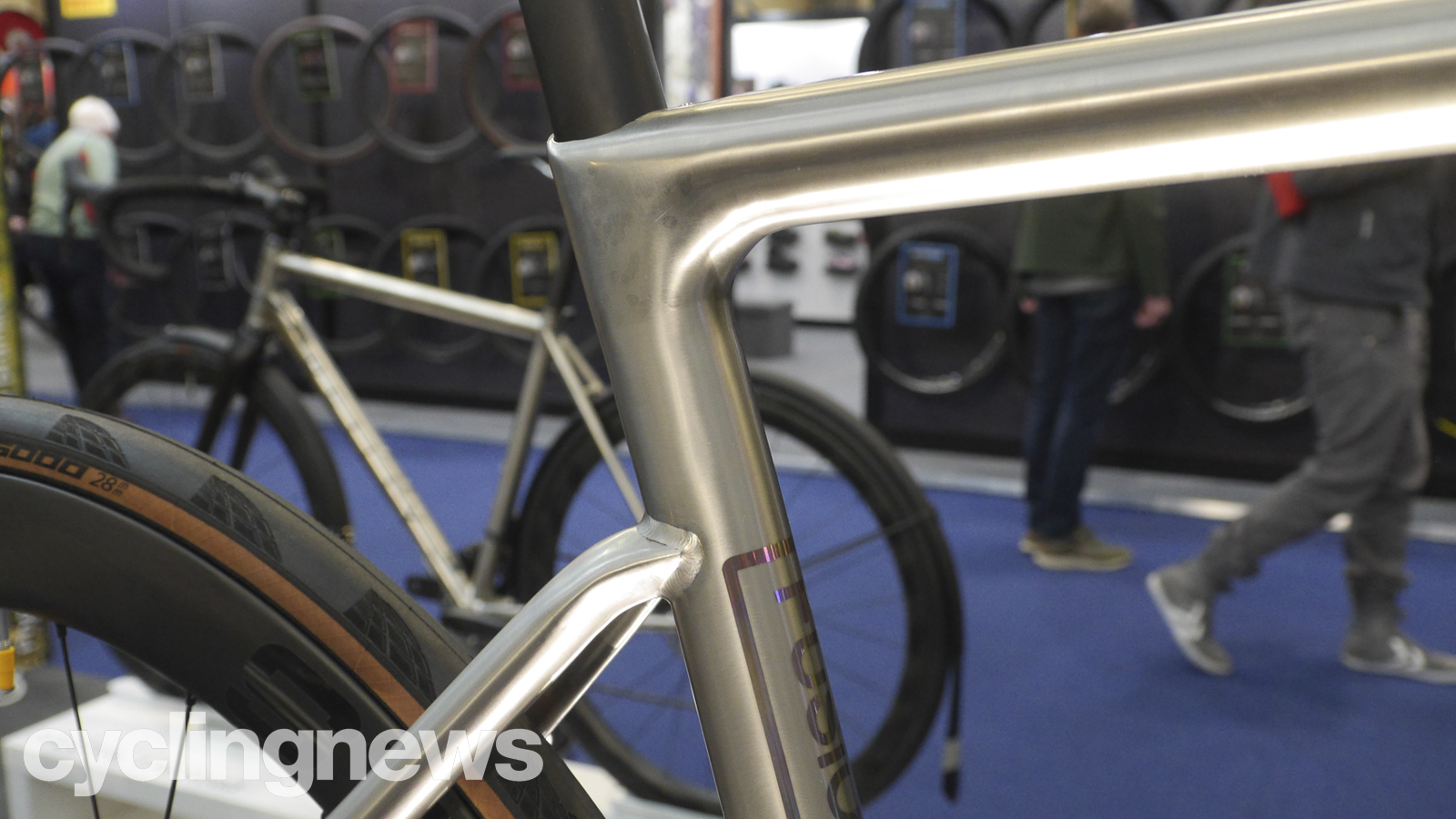
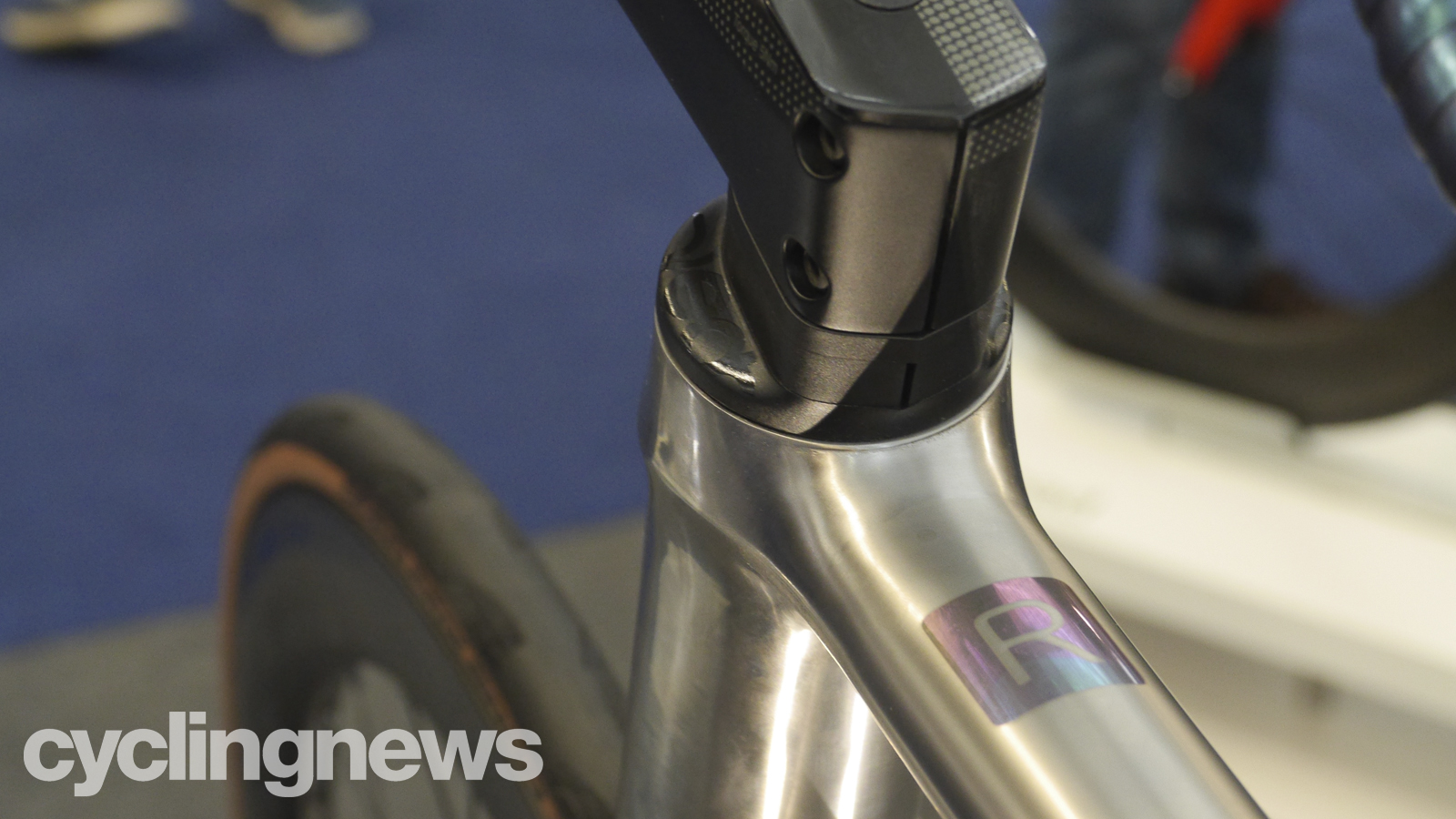
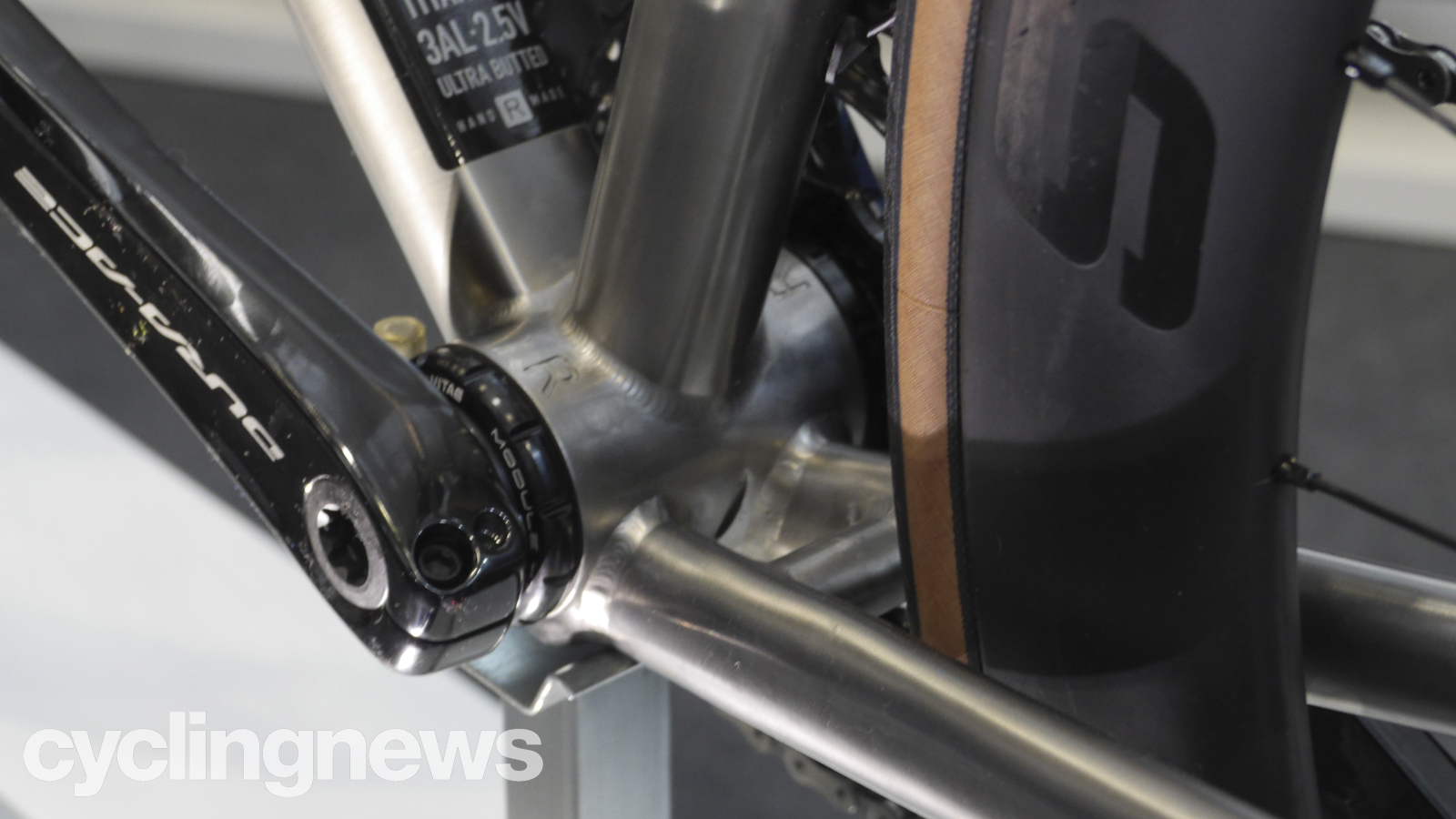
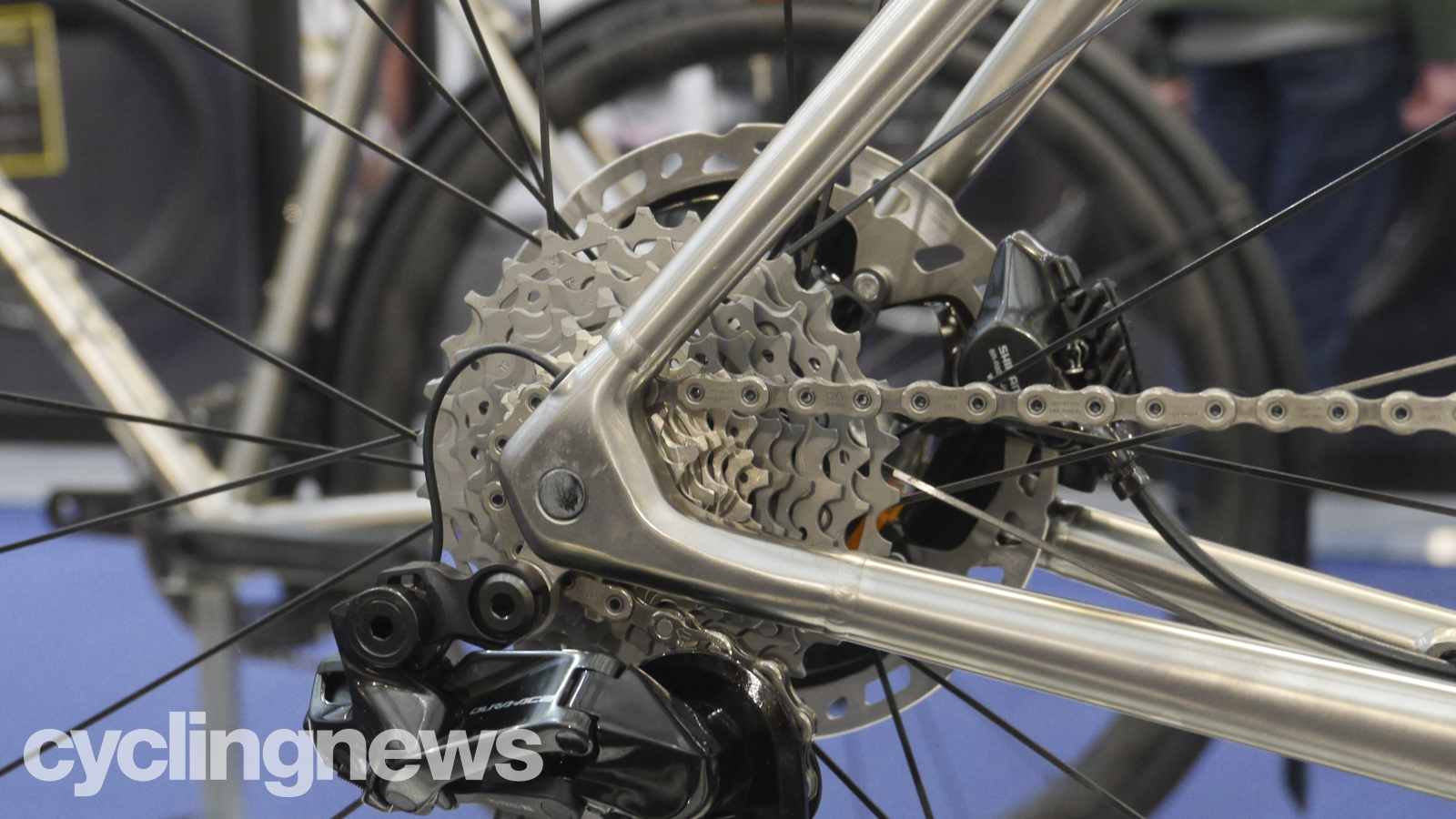
Reilly's Fusion is truly stunning
British brand Reilly Cycleworks used the show to unveil the Fusion, its brand new road bike that is both titanium in construction and aerodynamic in design. It uses a technology called investment casting - not 3D printing as we initially expected - to create tube shapes more complex than the traditional round cross-section. The result is an aero shape that looks decidedly similar to a monocoque carbon fibre frame, but in titanium's stunning polished silver finish.
If you're looking for one of the best road bikes and you want titanium construction, aero performance and, quite frankly a stunning aesthetic, the build you see here will set you back a cool £10,000. That's obviously a lot of money, but when you compare that to the €16,780 Colnago is asking for its latest titanium-laden C68 bike, you get a sense of the premium ballpark in which this Reilly Fusion is playing.
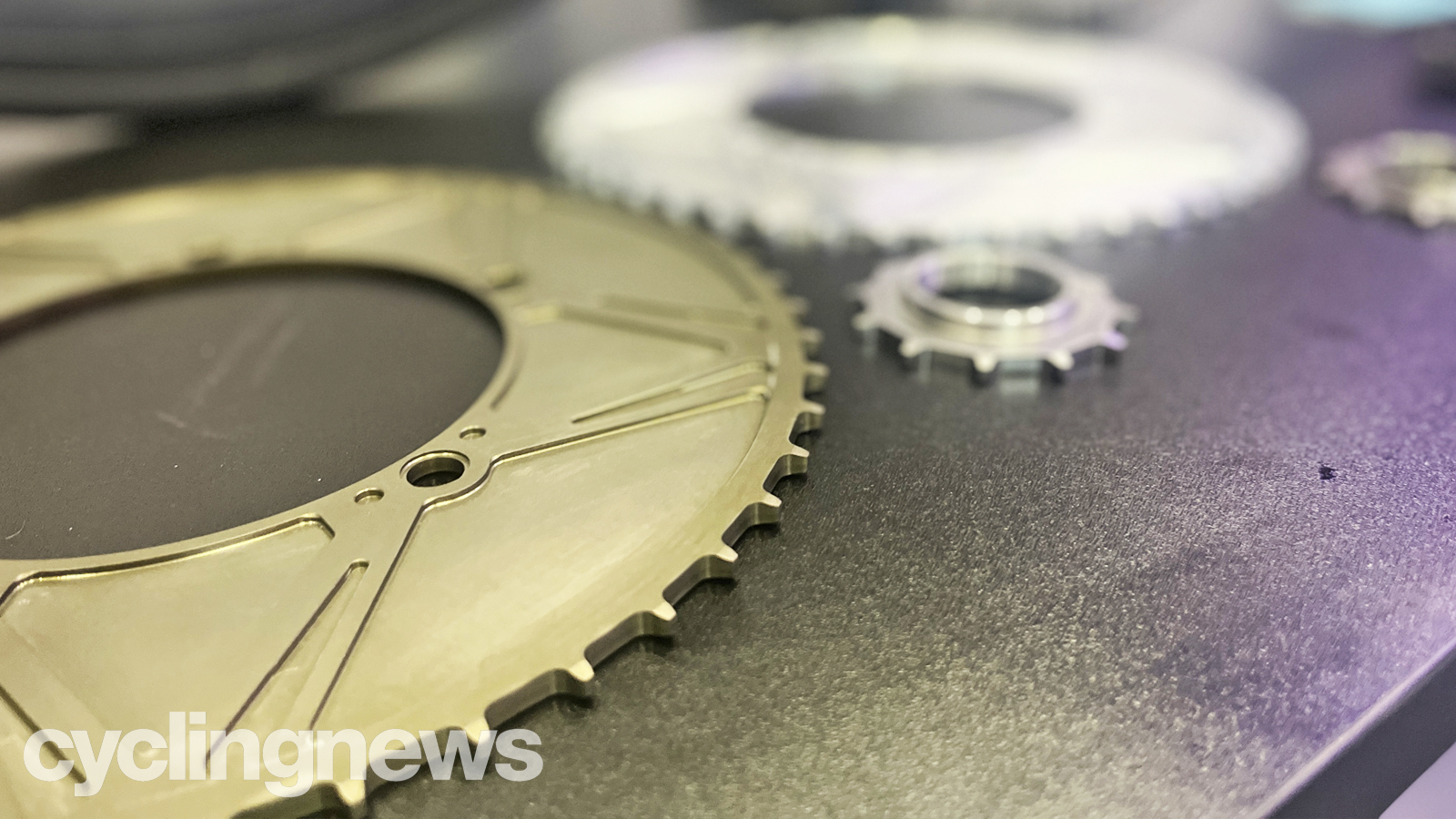
New Motion Labs sinks its teeth into new ideas
New Motion Labs grabbed headlines ahead of the Tokyo Olympics as a potential drivetrain upgrade for track bikes, claiming to be the 'fastest ever drivetrain technology' thanks to its dual-engagement principle which removes the friction of the chain 'rolling' between teeth as it does on the single-engagement systems we're used to. However, the UCI's public availability rules meant it didn't get used in the Izu velodrome.
Fast forward to today and the brand still has its foot on the gas, with the technology known formally as Enduo being split into two derivatives: road and cargo. Electric cargo bikes are known to put huge strain on chains, where a failure can cost the owner significantly more in lost revenue than just the cost of a repair.
The focus for New Motion Labs is to solve this problem, claiming Enduo is three times more durable than the systems it would replace. It would work as an aftermarket upgrade, and is already being explored by numerous cargo bike courier firms as well as mainstream couriers such as DHL. However, the brand is thinking bigger than cycling, with plans of licensing its technology to, well, any application that uses chains, such as factory production lines. The reason for this is that the technology is not only more efficient when it comes to energy loss, but also three times more durable than a standard chain, according to its claims.
As for Enduo Road, the Dutch national track team are already trialling the technology, and New Motion Labs claims that by the end of this year, we may see WorldTour riders using the Enduo chainring technology on time trial bikes with a 1x configuration. What's more, conversations are taking place with regards to potential involvement with Filippo Ganna's hour record attempt.
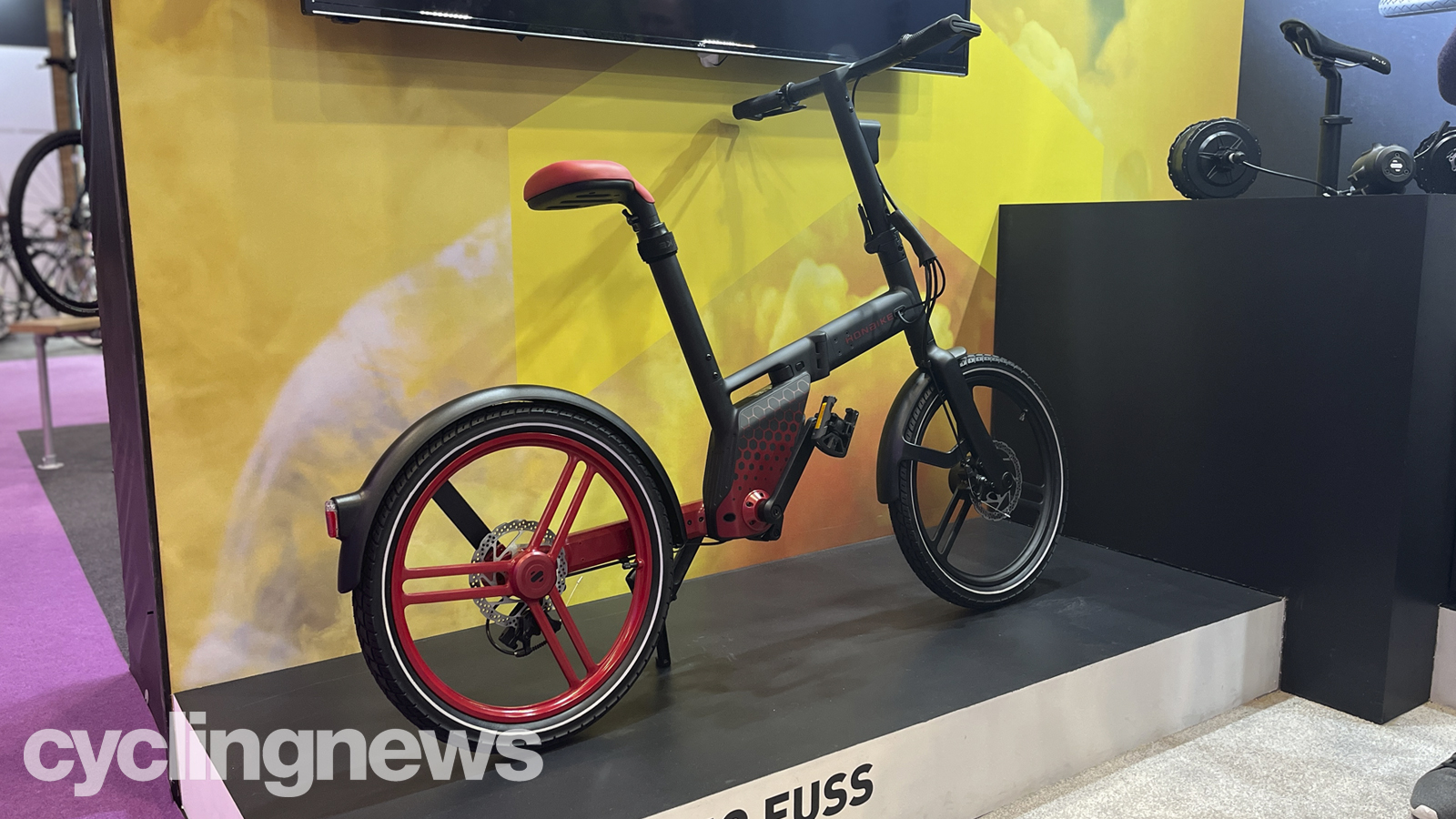
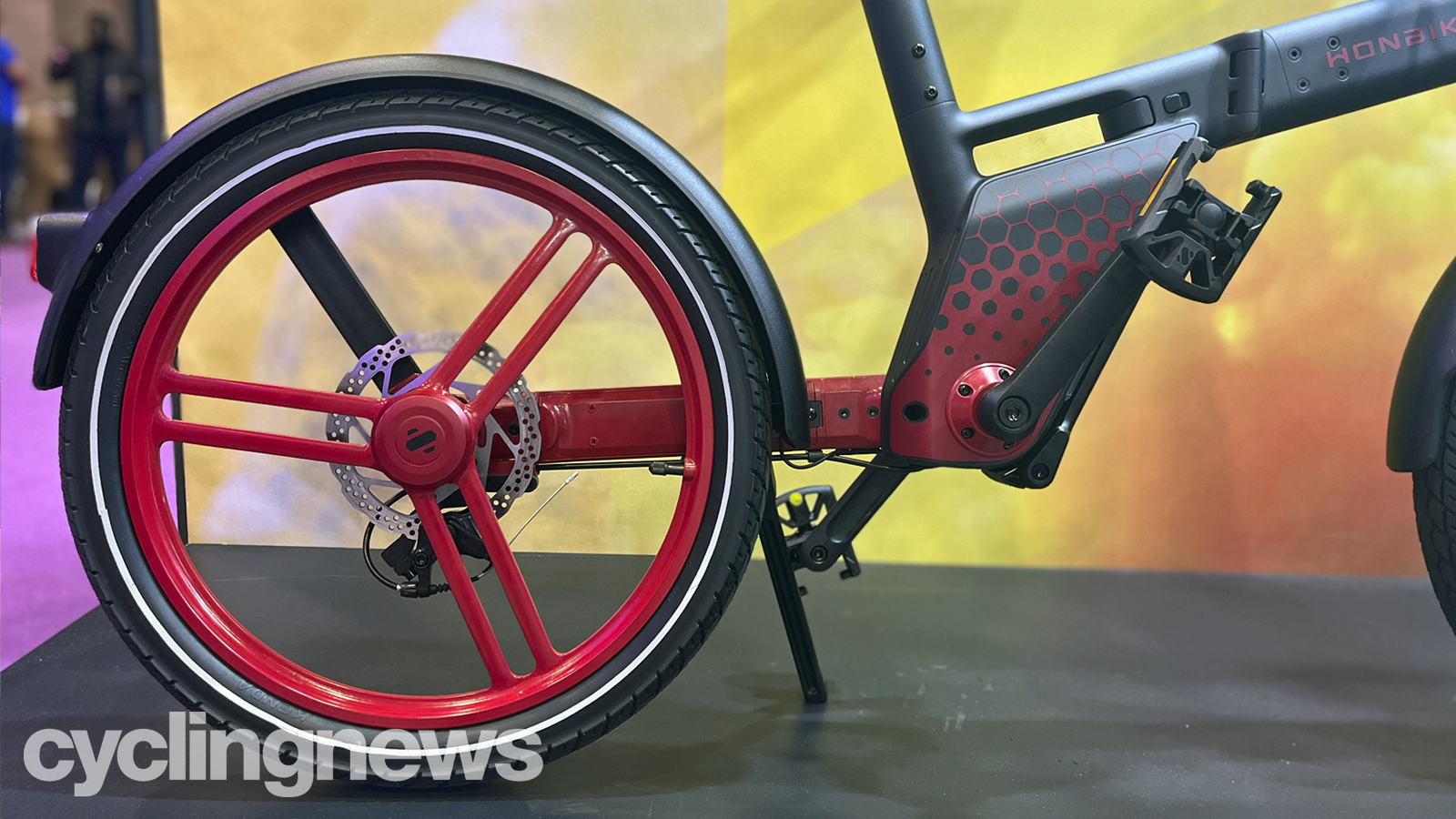
A shaft-drive eBike
Shaft-drive bicycle drivetrains are far from novel, but they're seeing something of a resurgence in recent years due in large part to Driven, the subsidiary of CeramicSpeed whose rideable shaft-drive concept comes with market-leading drivetrain efficiency claims. However, while Driven is yet to make it to a publicly available product, enter Honbike, whose folding, shaft-drive electric bike is well and truly ready to ride.
With an impressive claim of almost 25,000 maintenance-free miles, the potential application for this technology in the utility space is undoubtedly quite large. We might speculate that the technology may find its way onto cargo bikes, where (as we discuss above) chains experience particular strain, or the simplification and cost reduction of city bike hire schemes.
Ultimately, it might not be as sexy as the Reilly Fusion or newsworthy as Chris King's foray into complete wheels, but the potential result could be more people ditching the car in favour of using bikes for transport and utility, and to us, that's just as exciting.

Josh is Associate Editor of Cyclingnews – leading our content on the best bikes, kit and the latest breaking tech stories from the pro peloton. He has been with us since the summer of 2019 and throughout that time he's covered everything from buyer's guides and deals to the latest tech news and reviews.
On the bike, Josh has been riding and racing for over 15 years. He started out racing cross country in his teens back when 26-inch wheels and triple chainsets were still mainstream, but he found favour in road racing in his early 20s, racing at a local and national level for Somerset-based Team Tor 2000. These days he rides indoors for convenience and fitness, and outdoors for fun on road, gravel, 'cross and cross-country bikes, the latter usually with his two dogs in tow.